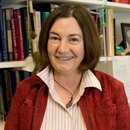Page 24 • (1,853 results in 0.019 seconds)
-
), BUSA 303 (Business Law and Ethics), PHIL 125 (Ethics and the Good Life), PHIL 128 (Politics and the Good Society), PHIL 227 (Philosophy and Race), or PHIL 229 (Human Rights). Majors and minors are expected to maintain a minimum grade of C- in criminal justice and sociology classes.Recommended Course Sequencing for Criminal Justice MajorsDeclare your MajorIf you would like to declare your major in criminal justice schedule a meeting with the department chair, Laura McCloud mcclouls@plu.edu.Due to
-

woven into our society has made me a better communicator and deepened my ability to understand the complex systems around me. — Allison S., ‘23 Did you know? Many religion students double major—pursuing multiple interests, and distinguishing themselves as more knowledgeable on the job market! Did you know? PLU’s extensive, balanced and creative religion curriculum is recognized as among the best in the Pacific Northwest. Did you know? Students can take classes in environmental ethics, the religions
-
campus. Her teaching and research interests include Spanish for heritage speakers, critical race and identity studies, and the relationship between literary study and political activism. Emily Davidson Kevin J. O’BrienKevin J. O’Brien is Associate Professor of Religion and Dean of Humanities at Pacific Lutheran University. His teaching and research focus on Christian environmental ethics, the intersection of religion and the environment, and the intersection of environmental concerns with social
-
late 1990’s as a new faculty member out of graduate school.So what is going on at PLU? At PLU, many of our philosophy faculty have areas of research that relate to applied and public areas of concern (moral injury, biomedical ethics, ethics and economy, animal rights, food), teach in multi and interdisciplinary programs and work with other faculty, and staff across disciplines and areas of expertise. We also engage our students in student/faculty research and professional activities, participate in
-

? Better than science is science with heart, science with ethics, science with equity, science with justice.”] [video: Four short clips of Rebecca and Professor Munro in a chemistry lab, doing experiments and teaching, respectively. Rebecca heating using round bottom flask under a fume hood to look at the sample vial] (upbeat music continues) [video: Professor Munro is sitting in a chemistry classroom with a whiteboard and projector screen in the background. There is a front and side video angle. Text
-

study from the Pacific Northwest." Cityscape: A Journal of Policy Development and Research Vol. 15 (2), 2013: 29-46. Keller, J. "Confronting stereotypes: Children and families in public housing, in Yeakey, C. C." Living on the boundaries: Urban marginality in national and international contexts, Bingley, UK: Emerald Group Publishing, Ltd 2012: 291-312. Keller, J., Laakso, J., Stevens, C, & Tashiro, C. "The slippery slope of evaluation: Ethics, issues, & methodological challenges using the case study
Contact InformationArea of Emphasis/Expertise -
reforming movements. Among his published works are Luther and the Hungry Poor: Gathered Fragments . Guest Contributors Kevin J. O’Brien Kevin teaches courses in Christian ecological ethics, religion and environment. He also teaches comparative ethics and Christian ethics in the religion department. His research focuses on the interconnections between religious faith and social justice, human ethics and environmental concerns, scientific data and moral commitments. Lisa Patterson ’98 Lisa Patterson is
-
May 3, 2013 PLU welcomed into CFA Institute University Recognition Program Pacific Lutheran University has become the latest university to be welcomed into the CFA Institute University Recognition Program. The Master of Science in Finance (MSF) has been acknowledged as incorporating at least 70 percent of the CFA Program Candidate Body of Knowledge (CBOK) and placing emphasis on the CFA Institute Code of Ethics and Standards of Practice within the program. This program positions students well
-

contributor to the Neuroethics research focus within UW’s Center for Neurotechnology (systems that record and stimulate the nervous system), he also leads diversity, equity, and inclusion efforts within the International Neuroethics Society. Brown’s interdisciplinary research includes the potential impact of neurotechnologies on end users’ agency and embodiment, and the potential to exacerbate or create social inequities. Brown works at the intersection of biomedical ethics, philosophy of technology
-
Social Work Related ResourcesAssociation of Social Work Boards National Association of Social Workers (NASW) National Association of Social Workers (Washington Chapter) NASW – Code of Ethics Washington Occupational Information System (WOIS) Washington State Department of Health United Way of Pierce County
Do you have any feedback for us? If so, feel free to use our Feedback Form.


